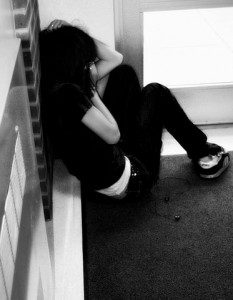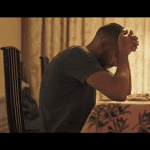 I have been speaking about mental illness for a while now on the blog. I want to now turn to some specific illnesses and look at how they are treated, and what Christians can do to support those treatment efforts. Remember first of all, to always be alert to the risk of suicidal thoughts or actions.
I have been speaking about mental illness for a while now on the blog. I want to now turn to some specific illnesses and look at how they are treated, and what Christians can do to support those treatment efforts. Remember first of all, to always be alert to the risk of suicidal thoughts or actions.
If you are unsure what a mental illness is, see the previous posts in this series, especially: What is a mental illness? and What causes mental illnesses?
In a previous post I outlined the major symptoms of depression and other mental illnesses. This is the most common of all psychiatric illnesses, and the most popular post I have written on this blog asked the question “Can a Christian get depressed?”
To understand the condition commonly simply called “depression” we need to understand the nature of the symptoms, the time-course of those symptoms, and the presence of certain other conditions.
“Clinical Depression” is termed by psychiatrists “Major Depressive Disorder” and is sometimes called “Unipolar Depression.” It requires the presence of a certain number of the mood symptoms previously described, that must have been present for at least two weeks, and must represent a clear change from previous levels of functioning. It is one of the causes of what is commonly termed a “Mental Breakdown” which occurs when people who are previously seemingly well become unable to carry out their daily activities to the same level.
If a person is always low in mood, it is not correct to diagnose them as having clinical depression. The diagnosis there is dysthymia, and represents a personality that is always depressed. In clinical depression the low mood comes in seasons. These episodes can last a very long time, but looking back there will always have been a time when the person was not depressed. One key thing to hang on to during a long depressive episode is the likelihood that in due time the episode will almost certainly pass. Treatment aims to reduce the length of episodes, and your doctor may recommend that it continue with the aim of preventing any more episodes.
It is possible for a patient to be diagnosed with depression, even in the absence of obvious low mood, with a lack of interest or pleasure being the recognized feature. Some complain of being unable to feel any emotions, rather than feeling sad.
Depression can be associated with other symptoms, but these should not predominate for the diagnosis to be correct. Thus most people with depression will also experience some anxiety. A few will even experience some of the psychotic symptoms I previously described, if present these are usually very consistent with the mood state. But depressive symptoms will predominate.
Patients with clinical depression will not experience “highs.” A careful examination of the history of a person who appears depressed to rule these “high” periods out is vital to exclude bipolar disorder, which we will speak about in another post.
There are numerous physical conditions that can mimic depression. It is vital that a doctor does a thorough examination and runs blood tests to rule these out.
One area of controversy is the overlap between depression and M.E. or Chronic Fatigue Syndrome. When you bear in bind that psychiatrists say it is possible to have all the symptoms of depression without having a sense of being low or sad yourself, then it is easy to see why some simply believe M.E. is another name for depression. There does however seem to be evidence that some patients have a post viral fatigue syndrome. It is certainly true, however, that many with the characteristic muscle symptoms of chronic fatigue will quite understandably get depressed. Also, for many with chronic fatigue, treatments used for depression can be of some benefit.
How can depression be treated? Here it is important to understand that depression ranges from mild to moderate to severe. Treatments will tend to follow this progression. Doctors will disagree about how severe depression must be before medication should be offered. In the early stages, depression can sometimes be staved off by simple changes to our lifestyles. But, even as the level of depression worsens it is important not to ignore the benefits of other treatments. Many will require medication, but supplemented by other interventions it has more chance of helping your mood.
Since as we learnt before mental illness has a biopscyhosocial origin, targeting each of these aspects, together with the spiritual, is the most appropriate. The more severe the depression is, the more emphasis will be placed on medical treatments. Note that you should always speak with a doctor about treatment of individual patients.
1. Biological / Physical interventions
Diet: Certain foods are believed to boost serotonin levels, and may hence make us feel happier. Some people report an improvement in mood from simply eating more dark chocolate, for example.
Exercise: Even a simple walk, especially if take in open green spaces is known to improve mood in many individuals.
Sleep: Trying to burn the candle at both ends is not healthy for our mood. Sometimes simply being disciplined enough to get to bed earlier can help massively. Even one good nights sleep can help us regain our perspective sometimes. Good sleep hygeine can help if getting to sleep is a struggle. Some people find a massive improvement in their sleep by giving up caffeine altogether (do this gradually due to withdrawal symptoms) or limiting caffeine intake to before lunchtime.
Herbal remedies Caution should be used before consuming herbal remedies as they are usually not approved by the regulatory body for medicines in your country, and may not be manufactured to strict quality controls. Some herbal remedies are frequently used, however. In particular, St John’s Wort has a long history of use, especially in Germanic countries for mild depression. It is known to have some similar actions to some antidepressant medications, and has a number of known interactions with other drugs. Please speak to your doctor before taking any herbal remedy, especially if you are already on other prescribed medications.
Light boxes In winter months many people struggle more with low mood. Some have reported an improvement by the use of devices designed to stimulate our brains with the same range of wavelengths of light that the sun produces.
Antidepressants There are a range of antidepressant treatments that doctors will use. There is usually no way of knowing which medication will be best for an individual. In some cases switching to a new medication, even from the same class will lead to significant improvements. Some side effects are temporary, and will pass with time. A few patients require a more gradual increase in the dose than standard to help with tolerability. These medications can have side effects that can even include a worsening of the psychiatric illness, so it is important that people beginning these medications are closely monitored by a doctor. Questions to ask your doctor when considering which medication to take include:
- What is the side effect profile like for this medication?
- How toxic is this medication in overdose? There are some antidepressant medications that are highly toxic even in a mild, accidental overdose, and it may be a wise precaution to avoid these unless other treatments fail.
- Is this medication targeting serotonin, noradrenaline, or both?
Add-0n treatments If treatment with the first antidepressant fails, or has side effects it is often possible to switch to another tablet. There are a range of other treatments that are sometimes added to antidepressants with the goal of making them work better. Only a few of these treatments will be officially approved by medical regulators.
Transcranial magnetic stimulation A device stimulates brain neurons via a magnetic field. The evidence for the usefulness of this treatment in depression is not as strong as either medication treatment or ECT (see below). Its use is therefore controversial, and not approved in some countries, but some patients report a benefit.
Electroconvulsive therapy (ECT) The idea of being anesthetized, and having an electric current passed across the brain may sound disconcerting. But it can literally be lifesaving, especially in severe depression where patients may become unable to move, eat, drink, or speak. ECT is generally believed by psychiatrists to be the most effective treatment for depression.
2. Psychological
Today’s post is becoming too long, so I will not explain here in detail all the different models of counseling that are available. But there is good evidence that the so-called “talking cures” have an important part to play in the treatment of depression. In fact some studies suggest that in milder cases psychological treatments like Cognitive Behavioral Therapy can be as effective as medications.
Other simple things that effect what we are thinking about can also have an effect on our mood, especially in more mild cases of depression. Watching a comedy, listening to uplifting music, etc, can all sometimes help. When the mood altering affects of such things does not work, it may well be because the depression is becoming more severe.
3. Social
It seems that we all have an optimum level of social demands and stress that causes us to be in the best mood and perform the best. Unemployed people get depressed. People under too much pressure at work get depressed. For some of us, when our mood is not right we would do well to find more to do. For others, depression is a sign we have taken on too much! This might seem odd, but it makes sense when we realize that for an optimum mood mood we need to be in a good set of personal relationships, we need to have a good sense of our own worth to society, and we need the right amount of stimulation and challenge.
As depression becomes more severe it becomes impossible to concentrate or to work. People begin to find it hard even to get out of bed. Depression is a very valid reason to take time off work sick. Often we use the euphemism “stress,” when what we mean is depression.
Interventions to help people return in a graded way to work (or at least a voluntary occupation) can help improve people’s mood when the time is right. Occupational Therapy is a way to help patients grow in confidence in their activities of daily living, and vocational or creative projects. If provision for mentally ill patients who are outpatients is not very strong in your area, a church-run craft club, or even just a coffee club encouraging mutual support and friendship may be very beneficial.
Obviously in more severe cases patients will need to be taken from their natural social settings and placed into a hospital. This is best done with the patient’s consent, but will sometimes occur against the patient’s will in most countries. Treatment without consent is often necessary to protect patients from their own desires to commit suicide, or when dehydration and starvation is a serious risk.
Patients with depression will very rarely pose any significant risk to other members of society. Friendship and support of Christians will be very welcome, although at times of severe depression people may not feel like talking at all.
4. Spiritual
Guilt is a common theme in depression. This can sometimes (especially in more mild cases) be alleviated by the means of explaining the gospel of grace and forgiveness to people and praying with them. If even after such prayer a person persists in feeling guilty, and is simply unable to accept that they have been forgiven, it is important to consider depression as a possible cause of this state of mind.
Many good Christians will either loose their faith altogether during a time when they are depressed, or possibly worse, still believe in God and Jesus but be convinced that they can never be saved personally. This can be very alarming for friends, family, and pastors. Sometimes all the well-meaning counseling int he world may not return such a person to their faith, but medication might well lead to a remarkable rediscovery of faith.
Prayer can become very hard for people with depression, but prayer and medication can definitely be a help. Often we turn to prayer expecting instant results. Even antidepressant treatments take weeks to work, so persistence is well worth it. But be careful not to place more guilt on someone who is depressed if they simply find themselves unable to pray. Again, this can be a symptom of the illness, and medication may help them get to the place where prayer is more possible.
Worship Certain Christian music may be uplifting for people with depression.
Bible Reading There is so much to say about this, as it can effectively form a type of counseling if done well. Once again I think there is probably too much already in this post for me to go into more detail at the moment.
Church attendance Is your Church a place where it is OK to be if you struggle to smile? We want our churches to be happy places, and that alone can help someone feel better. But, we also need to encourage an honest environment were people can be real about how they are feeling. Setting such a culture is a challenge, as we certainly don’t want to create an environment where if you weren’t depressed before you walked through the door you will be before you leave!
Pastoral care This is vital and should not stop because someone is admitted to a psychiatric hospital for example. Do understand your limits, however, and try not to see mental health professionals as rivals! I am convinced that the pastoral care offered by pastors and mature church members has much to offer people with mental illness. It may take some working out how best for churches to work with psychiatric teams, but I believe that especially in a time of cut-backs, this is yet another area where the Church can practically demonstrate the love of God.
I will never forget witnessing the anxiety felt even by some senior doctors (who are not psychiatrists) when dealing with people with mental illness. We must never forget that whatever the diagnosis, these are all people. People who’s primary needs include the need for love and acceptance. But people who, like the rest of us, need to be treated with respect and dignity. I pray that readers of this blog will increasingly feel confident to demonstrate the love of Jesus to people with mental illness. After all, it is estimated that one in four of us will get depressed ourselves at some point in our lives. The help you offer now may be just what you need yourself one day.
READ MORE
What are mental illnesses and disorders? What effects do they have?













